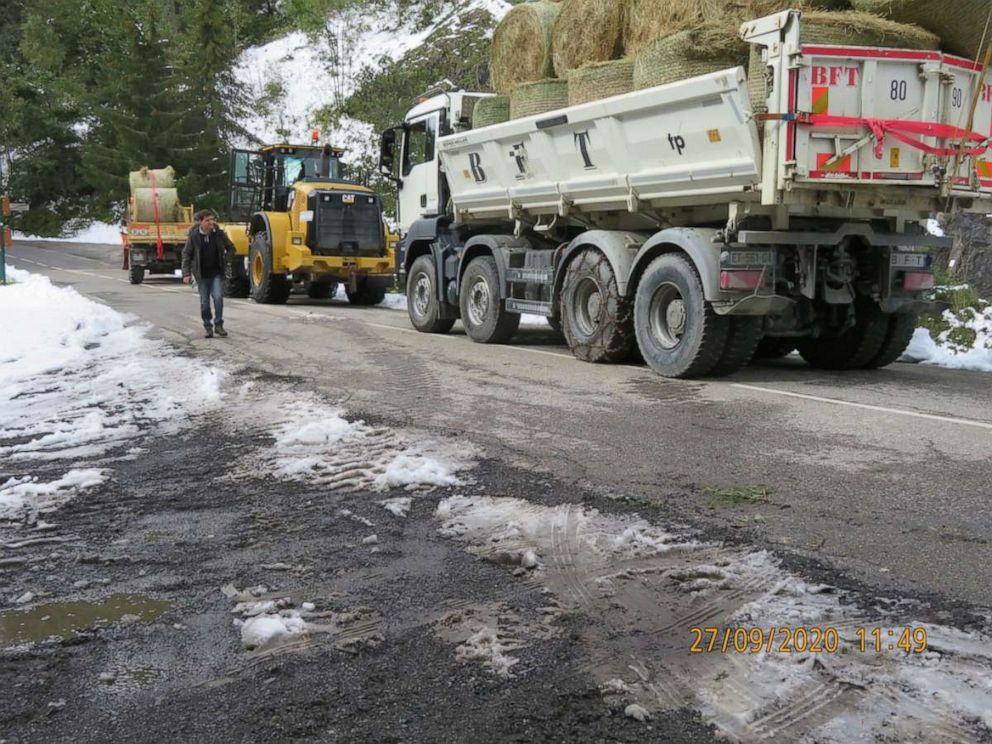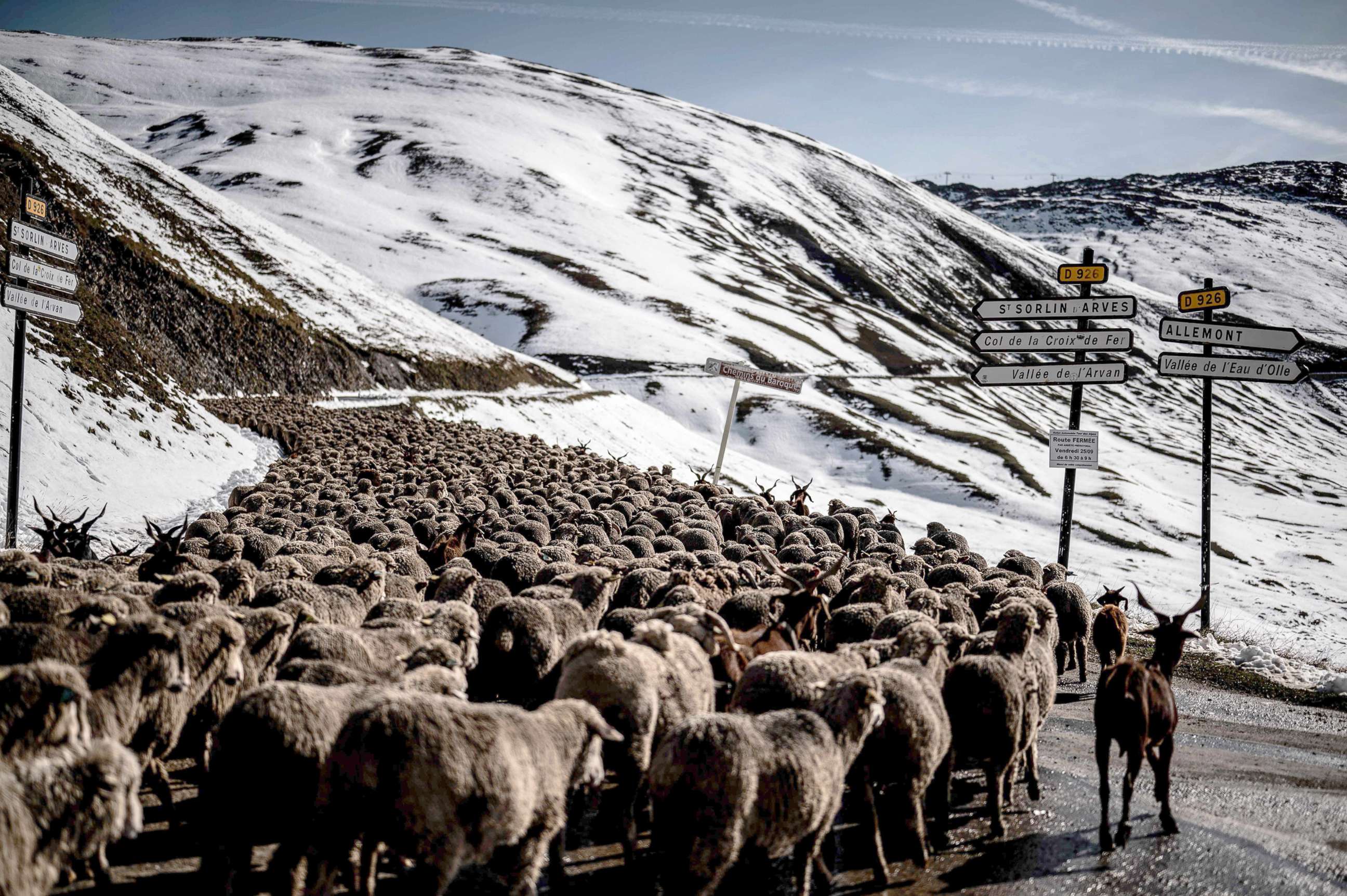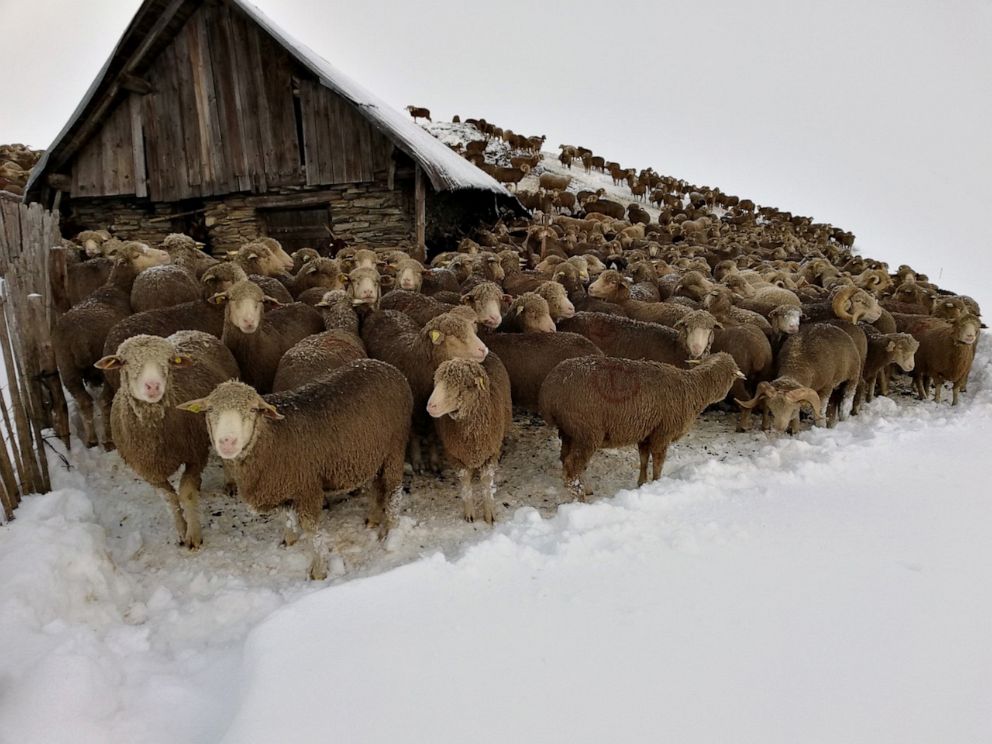6,000 sheep stranded in mountains after snow
One hundred Charolais cows are also stuck on the mountain.
Paris -- At least 6,000 sheep and six shepherds have been stranded in the French Alps since Saturday after a surprise snowfall.
France is experiencing exceptionally cold temperatures. Nearly 20 inches of snow has fallen in the Savoie region. A local official said the last time the region saw this amount of snow in September was 1974.

A rescue operation began on Sunday to save the sheep as well as a hundred cows stuck in the snow at an altitude of 6,200 feet. Local authorities transported six tons of hay to the stranded sheep, which had not eaten in 36 hours.
Thanks to the operation, some 1,000 animals were evacuated. Warmer weather on Tuesday allowed the sheep to eat the grass in places where the snow melted. More snowfall, however, is expected on Thursday.

The hundred stranded Charolais cows have a better chance of surviving, according to Christian Frasson-Botton, an official in the town of Saint-Colomban-des-Villards.
"Cows have long legs and can walk a longer distance in the snow as opposed to sheep," he told ABC News.
It will take at least five hours for the remaining sheep to walk to the valley where trucks can drive them home.

There have also been three wolf attacks on three different stranded herds since the stranding.
"The breeders will take this as a lesson and take even more precaution," said Frasson-Botton.
The last herds usually return from the pastures at the end of October.